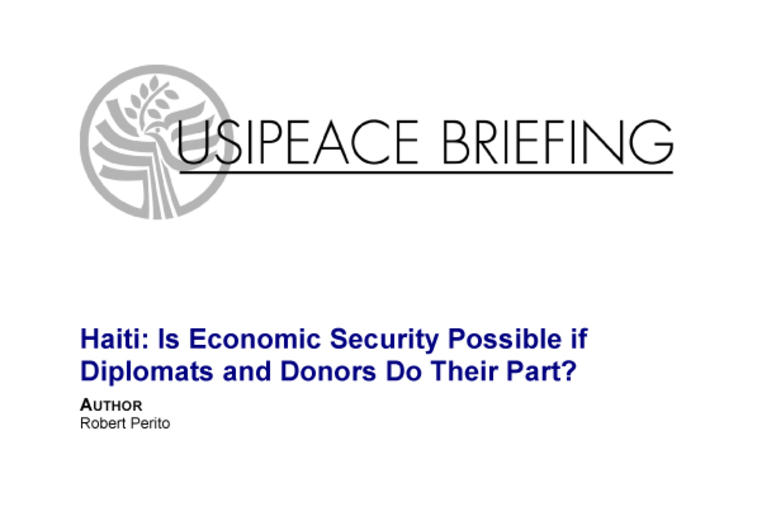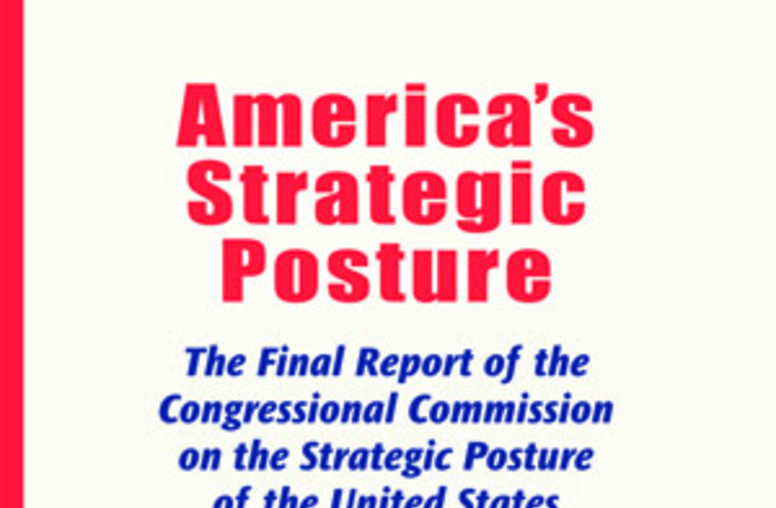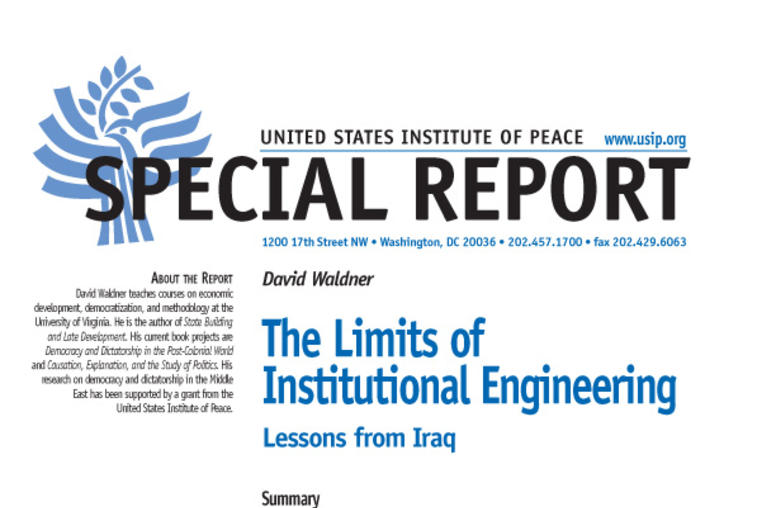Question And Answer
Publications
Articles, publications, books, tools and multimedia features from the U.S. Institute of Peace provide the latest news, analysis, research findings, practitioner guides and reports, all related to the conflict zones and issues that are at the center of the Institute’s work to prevent and reduce violent conflict.

Haiti: Is Economic Security Possible if Diplomats and Donors Do Their Part?
In 2009, Haiti has been the subject of an unprecedented diplomatic initiative led by the United Nations. In rapid succession, Haiti received visits from the UN Secretary General Ban Ki-moon, the UN Security Council, former President Bill Clinton and Secretary of State Hillary Clinton and numerous senior delegations from Caribbean and South American countries
Task Force on the United Nations
USIP was directed by Congress in December 2004 to create a Task Force on the United Nations. The task force assessed the extent to which the United Nations is fulfilling the purposes stated in its Charter and recommended an actionable agenda for the United States on the UN. While not an official U.S. government effort, the Task Force was obligated to provide its report to Congress.
On the Issues: Pakistan
President Barack Obama recently met with Pakistan President Asif Ali Zardari and Afghan President Hamid Karzai and pressed the two leaders to do more to combat Taliban and al Qaeda fighters in the border area. Rodney W. Jones, program officer for USIP’s Center for Conflict Analysis and Prevention, assesses Pakistan’s efforts to battle insurgents, the Obama administration’s new approach on Pakistan and Afghanistan, and what USIP is doing to address the problems in the troubled region.
Passing the Baton 2009
On January 8, 2009, the United States Institute of Peace convened Passing the Baton 2009, a remarkable full-day public conference that convened high-level, bipartisan US foreign policy leaders to speak on crucial foreign policy and security issues facing the Obama administration as it transitions into power.
Religion, Conflict, and Education
USIP's Current Projects on Religion, Conflict, and Education Curricular Material for Madrassas In Indonesia, USIP is working with local Islamic scholars and clergy to develop curricular materials that provide contemporary interpretations of Islamic texts on peace, violence, interfaith relations, human rights, the status of women, and the environment. Materials developed in Aceh have been piloted and embraced by local ulama. The materials are currently being translated into English and...
International Law and Armed Conflict
Rule of Law is examining the evolving legal and institutional arrangements for addressing violations of international humanitarian law (IHL). As part of this ongoing effort, USIP has just produced a guide to training programs in IHL for military personnel around the world.
Iraq and Its Neighbors
This initiative, which brings together leading figures from Iraq and its six neighbors, and produced the March 2007 Marmara Declaration, is the only initiative of its kind.
Core Conflict Management Resources
An online toolkit for peacemakers, negotiators, and other conflict management practitioners.

America's Strategic Posture
For more than eleven months this bipartisan commission of leading experts on national security, arms control, and nuclear technology met with Congressional leaders, military officers, high-level officials of several countries, arms control groups, and technical experts to assess the appropriate roles for nuclear weapons, nonproliferation programs, and missile defenses. This official edition contains a discussion of key questions and issues as well as the Commission’s findings and recommendati...

The Limits of Institutional Engineering: Lessons from Iraq
Post-conflict, post-totalitarian societies like Iraq possess many economic, political, social, and cultural characteristics that are not conducive to democratic governance. A central pillar of democracy promotion is that judicious institutional engineering--crafting new institutions and other elements outlining the democratic rules of the game--can overcome these obstacles and engender stable democracies.